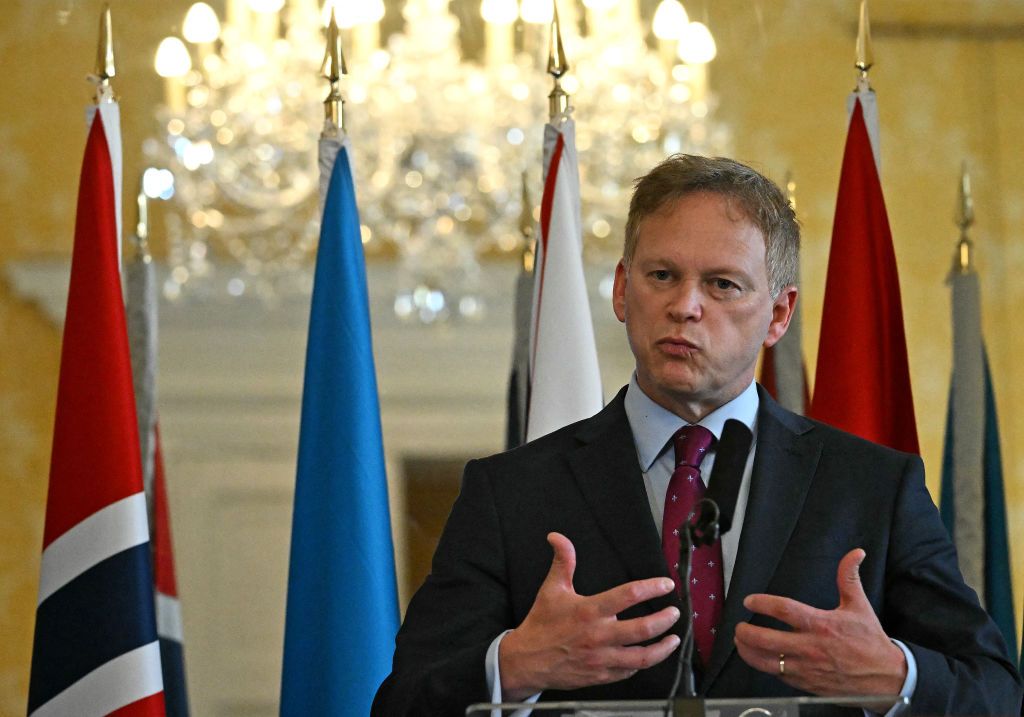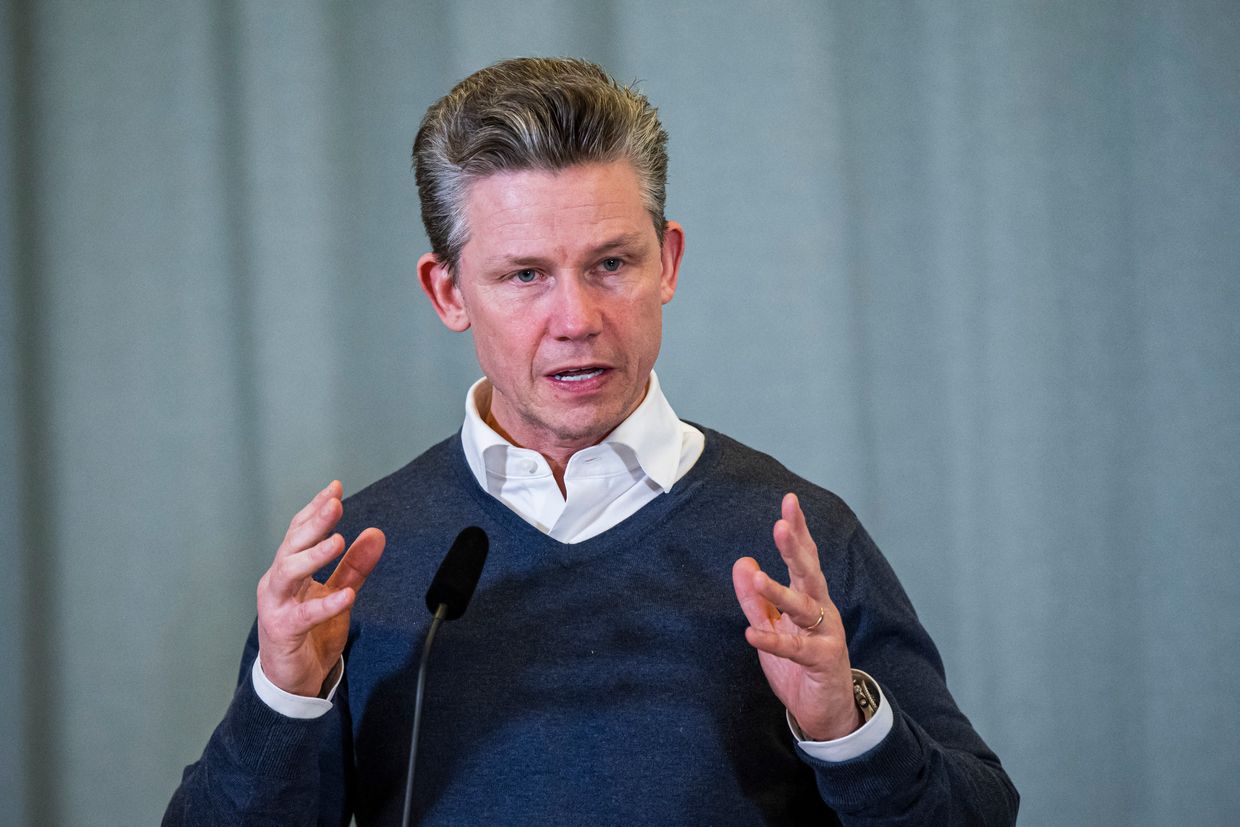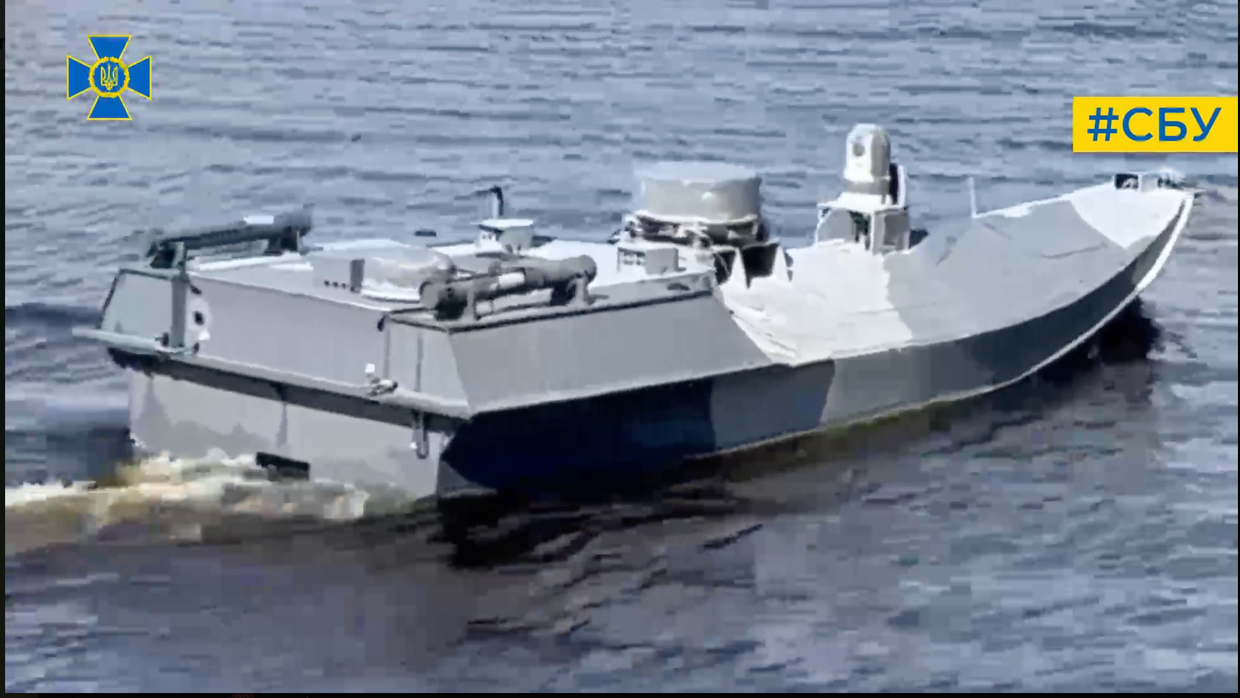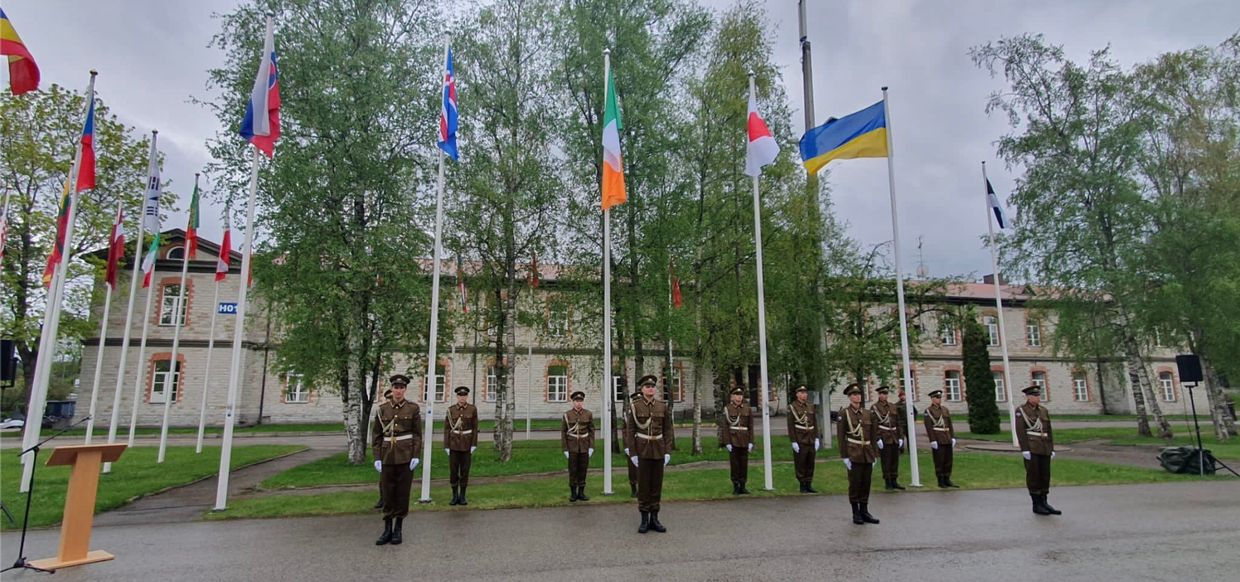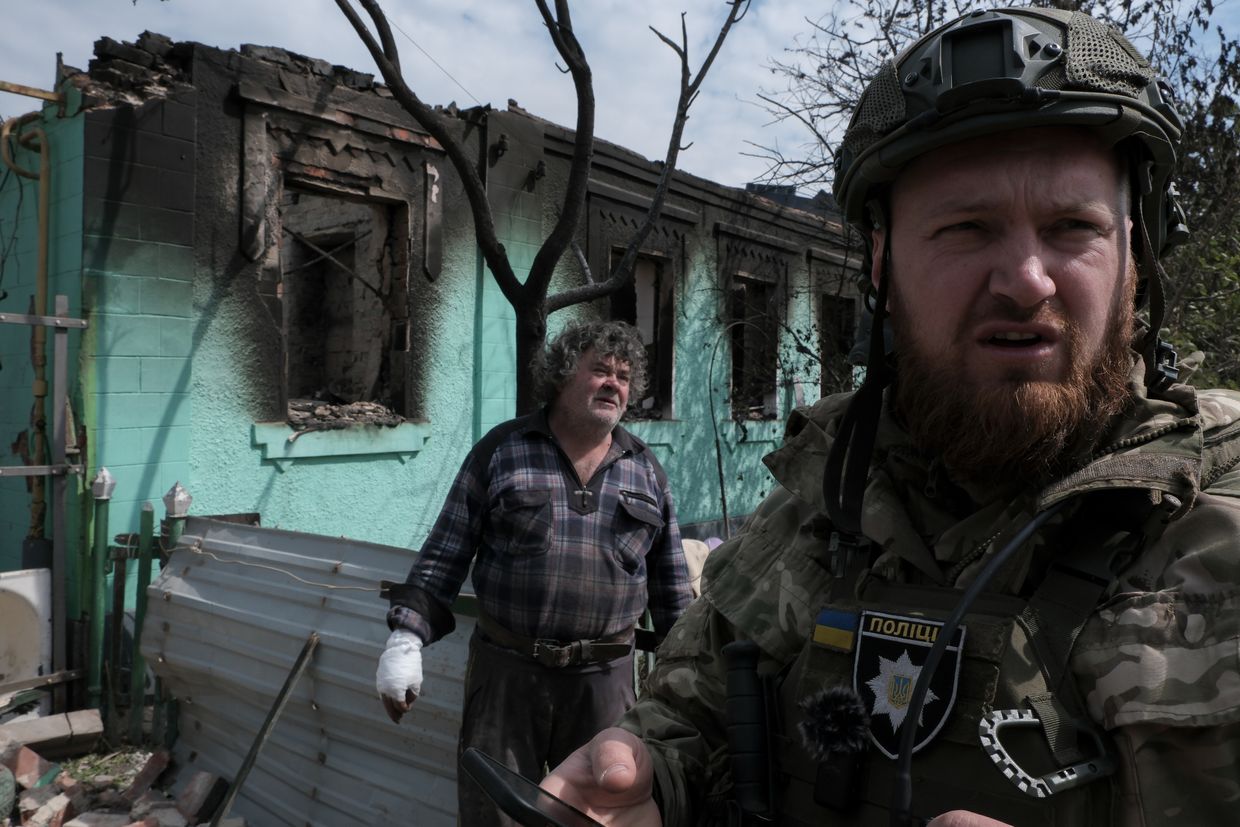Ukraine war latest: UK defense secretary says intelligence has evidence of Chinese lethal aid to Russia

Key updates on May 22:
- UK defense secretary: Intelligence has evidence of Chinese lethal aid to Russia, world needs to 'wake up'
- Sweden plans to allocate $7 billion in military aid to Ukraine between 2024-2026
- Source: SBU has a new weapon – Grad-equipped Sea Baby drones
- Estonian PM Kallas: Russia is conducting 'shadow war' on West
- Police: Russian forces shooting civilians in Vovchansk
The U.S. and U.K. have evidence that China is supplying or about to supply lethal aid to Russia, Reuters reported on May 22, citing British Defense Secretary Grant Shapps.
Speaking at the London Defense Conference, Shapps said he was declassifying new intelligence to reveal the "quite significant" development and called on the world to "wake up" to the threat it poses.
China officially declares itself a neutral party to Russia's full-scale war in Ukraine and has denied providing lethal aid, but Beijing and Moscow continue to develop closer ties, most recently with Russian President Vladimir Putin visiting his counterpart Xi Jinping last week.
U.S. officials have previously warned China against providing Russia with lethal military aid and urged Beijing to use its influence over Moscow to help end the war. Shapps latest comments suggest those warnings are going unheeded.
U.S. and British defense intelligence now show that "lethal aid is now, or will be, flowing from China to Russia and into Ukraine," Shapps said in comments reported by Reuters.
"The 64% increase in trade that we've seen between the two countries reveals that there is actually a much deeper relationship there," Shapps said, as reported by the Press Association.
Shapps did not elaborate on the specifics of the lethal aid he was referring to. He said it was up to democratic states to make a "full-throated case" for a Western values-based international order which requires "more allies and partners" worldwide.
"It's time for the world to wake up. And that means translating this moment to concrete plans and capabilities. And that starts with laying the foundations for an alliance-wide increase in spending on our collective deterrent," he said.
China has insisted that it has not supported either Ukraine or Russia with weapons throughout the full-scale war.
Sweden plans to allocate $7 billion in military aid to Ukraine between 2024-2026
The Swedish government has agreed to create a support framework for Ukraine, which would allocate 75 billion Swedish krona ($7 billion) in military support from 2024 to 2026, the Swedish government said on May 22.
With this proposal, Stockholm's civilian and military aid to Ukraine since the outbreak of the full-scale war will amount to over 100 billion Swedish krona (over $9 billion).
"Ukraine's fight against Russia's war of aggression continues and Sweden will support Ukraine's fight as long as it takes," the joint press release by the country's defense and finance ministries read.
"Sweden will increase the support, as the framework amounts to 75 billion Swedish krona in military support for the years 2024–2026, which is 25 billion Swedish krona ($2.3 billion) per year," according to the statement.
The framework could cover future equipment donations, financial contributions, and financial support for the procurement of defense equipment.
The Swedish government reached an agreement on the framework with the right-wing Sweden Democrats party, which provides confidence and support to the ruling parties in the parliament.
In an interview with Bloomberg published on May 21, Swedish Defense Minister Pal Jonson said that the country is ramping up its capacities to increase aid to Ukraine, but the process could take up to two years.
"Russia has gotten back on its feet faster than the Euro-Atlantic community... I expect we will catch up, but I think it will take a year or two before we see the full effect," the minister said.
Source: SBU has a new weapon – Grad-equipped Sea Baby drones
The Security Service of Ukraine (SBU) has revealed the latest update to its highly-effective Sea Baby naval drones which are now capable of launching salvos of Grad rockets, a source in the agency told the Kyiv Independent on May 22.
Naval drones used by the SBU have hit several Russian warships but until now have been used as kamikaze drones that explode on impact or in the near vicinity of a target.
According to the SBU source, the new weapons system has already been in action "against Russian positions on the Kinburn spit," a thin stretch of coastal land near Mykolaiv.
"This technological solution is already showing powerful results," the source said without providing further details of the attack.
"So new surprises await the enemy," they added.
A video posted to YouTube purportedly shows the attack. The Kyiv Independent cannot independently verify the video.

Pictures released by the SBU show the drone in testing launching Grad rockets on land.
"Our Sea Baby is not just a drone, but a multifunctional platform that is constantly being improved," the source added.
The last update came just a few weeks ago when SBU spokesperson Artem Dekhtiarenko said the Sea Baby had been modernized and could now carry almost a ton of explosives to hit a target over 1,000 kilometers away.
"This means that the SBU can reach a target almost anywhere in the Black Sea," he said.
Dekhtiarenko said that in 2022, when the SBU first started to use homegrown sea drones, there had been no alternative to these drones worldwide.
The existing Western drones were large but not maneuverable, could easily be detected by "enemy radar stations," and did not have a warhead, the spokesperson added.
"Today, a drone worth Hr 8.5 million (around $216,000) destroys an enemy warship worth tens of millions of dollars."
Estonian PM Kallas: Russia is conducting 'shadow war' on West
Russia is waging a "shadow war" on the West, and there must be a coordinated response, the Associated Press wrote on May 22, citing comments from Estonian Prime Minister Kaja Kallas.
Kallas said she was concerned that some other European leaders have not viewed the uptick in incidents of sabotage and arrest of suspected spies across the EU to be interconnected.
The West needs to have a "serious discussion of a coordinated approach" to counter the Russian threat, she said.
"How far do we let them go on our soil?"
There have been several episodes linked to Russian security services in 2024 in Estonia alone, such as Russia's ongoing jamming of GPS signals on commercial flights across the Baltic region.
Lithuania's Foreign Minister Gabrielius Landsbergis said in April that GPS jamming was "too dangerous to ignore."
Kallas said that she had three requests to her European allies: "the recognition that these are not isolated events, second, that we share information about this amongst ourselves, (and) third, (to) make it as public as we can."
As more of these incidents are uncovered, Russia has been shifting tactics, Kallas said, and is using spies who pose as diplomats "all the time."
Russia's aim is to "sow fear" in Europe and hinder support for Ukraine, she said.
Estonia has been one of the leading military donors to Ukraine in terms of share of GDP since the beginning of the all-out war in 2022. Kallas and other Estonian politicians have also been particularly outspoken about the threat that Russia poses to Europe.
Police: Russian forces shooting civilians in Vovchansk
Russian forces in the embattled town of Vovchansk are shooting civilians as they try to escape the fighting, Ukrainian police said on May 22.
Speaking on air to KYIV24, Oleksii Kharkivskyi, the town's police chief, said there had been "several" incidents and investigations were "ongoing."
Around 100 Ukrainian civilians remain in Vovchansk, but Russian forces refuse to allow them to leave and have threatened to shoot them, Kharkiv Oblast Governor Oleh Syniehubov said on state television on May 21.
Syniehubov said those who remained in Vovchansk would be evacuated at the soonest possible opportunity but that 100 civilians had been effectively "taken hostage" by Russian troops and could not leave.
Kharkivskyi said civilians were trying to flee the fighting by crossing the Vovcha River, which flows through Vovchansk, where Russian forces were firing on them.
The police chief added that this continues to be an escape route, and on May 21, police helped eight people who had managed to make it across.
Syniehubov said on May 20 that more than 10,500 civilians had been evacuated from Kharkiv Oblast amid the renewed Russian onslaught.
Deputy Governor Roman Semenukha said on the same day that Ukrainian forces control about 60% of Vovchansk amid continuous Russian assaults.
"The enemy keeps trying, especially inside Vovchansk, to push the Ukrainian Armed Forces out of the town," he added.
Ukraine's Defense Ministry confirmed on May 15 that Russian units had entered the northern parts of the town.
The town is described by Ukrainian officials as almost destroyed, while Russia keeps attacking Vovchansk and other neighboring settlements, inflicting civilian casualties.


